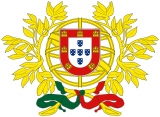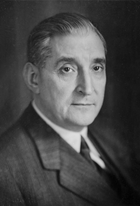| ||||||||||||||||||||||||||||
130 seats to the National Assembly 65 seats needed for a majority | ||||||||||||||||||||||||||||
|---|---|---|---|---|---|---|---|---|---|---|---|---|---|---|---|---|---|---|---|---|---|---|---|---|---|---|---|---|
| ||||||||||||||||||||||||||||
| ||||||||||||||||||||||||||||
 |
|---|
| Constitution |
Parliamentary elections were held in Portugal on 12 November 1961.[1] The ruling National Union won all 130 seats unopposed.[2]
YouTube Encyclopedic
-
1/5Views:2 66679910 06811 019464
-
Episode 1.5 Antonio Salazar - The New State
-
What General Lee's Flag Means
-
History Of Barbados
-
The Partition of India: Story of Mass Migration and a Bloody Massacre By Roman Saini
-
Indian Polity Series Ch- VI Constitutional Amendments | Political Science | Supreet | Unacademy Live
Transcription
Electoral system
The number of seats in the National Assembly was increased from 120 to 130 prior to the elections.[3] The number of seats for Angola and Mozambique was increased from four each to seven each, whilst Portuguese India and Cape Verde each gained a seat, taking their totals to three and two respectively.[3] Mainland Portugal also gained two seats.[3]
Following the granting of Portuguese citizenship to the indigenous inhabitants of Angola and Mozambique, they were entitled to vote for the first time as long as they were literate, held a job in a recognised profession, or were taxpayers.[3]
Campaign
A total of 25 opposition candidates registered to run in the elections on 12 lists.[2][4] They officially withdrew their candidacies on 7 November, protesting against the government's failure to allow "free and clean elections".[2] The Monarchist list was rejected in Lisbon after arriving to hand in their list a minute late.[4]
Results
 | |||
| Party | Votes | % | Seats |
|---|---|---|---|
| National Union | 100 | 130 | |
| Invalid/blank votes | – | – | |
| Total | 973,997 | 100 | 130 |
| Registered voters/turnout | 1,315,231 | 74.0 | – |
| Source: Nohlen & Stöver | |||
References
- ^ Dieter Nohlen & Philip Stöver (2010) Elections in Europe: A data handbook, p1542 ISBN 978-3-8329-5609-7
- ^ a b c "No Opposition In Portuguese Election "Discrimination By Government"" The Times, 8 November 1961, p11, Issue 55233
- ^ a b c d "Portugal To Vote On Nov. 12 Salazar Opponents Prepare Lists" The Times, 3 October 1961, p11, Issue 55202
- ^ a b "New Candidates In Portugal" The Times, 16 October 1961, p11, Issue 55213

